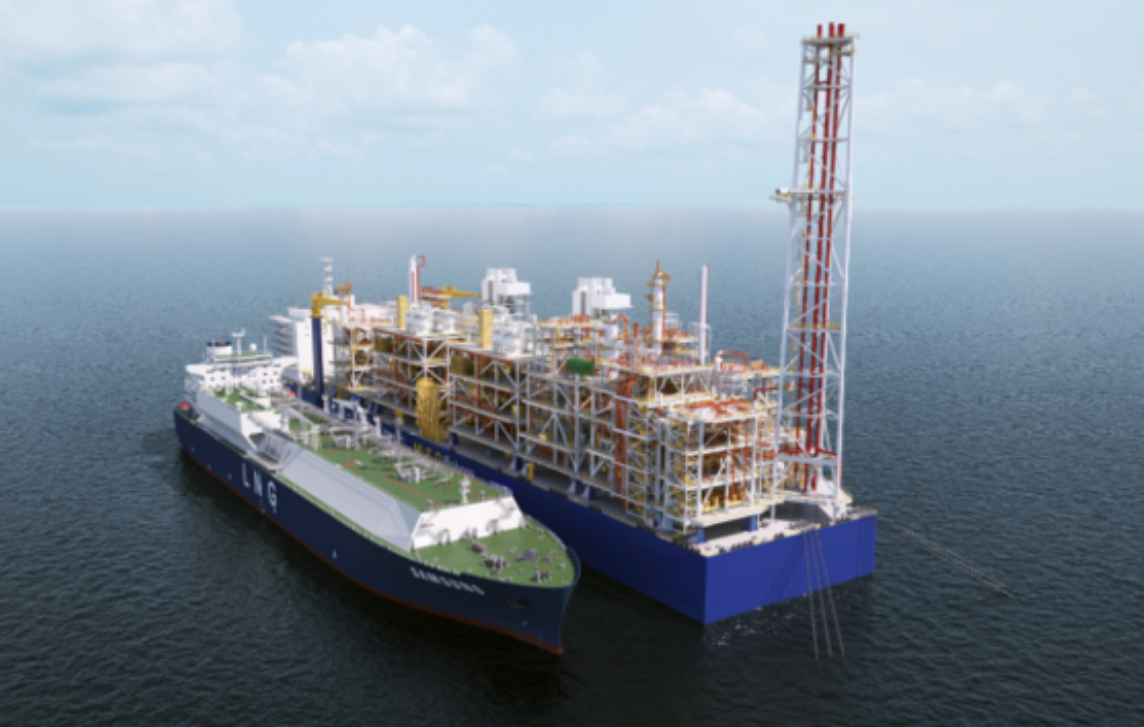The MLF-O floating liquefied natural gas (FLNG) production, storage, and offloading unit developed by South Korean shipbuilder Samsung Heavy Industries has obtained basic certification from the three major international classification societies.

During the Offshore Technology Conference (OTC 2025) held in Houston, the MLF-O FLNG developed by Samsung Heavy Industries received the Approval in Principle (AiP) from Det Norske Veritas (DNV), Lloyd’s Register (LR), and the American Bureau of Shipping (ABS). This is Samsung Heavy Industries’ second standard model, following the FLNG (MLF-N, Multi-Purpose LNG Floater – Nearshore), which is designed for coastal use, and contributes to the further diversification of its FLNG product lineup.
Samsung Heavy Industries indicates that the MLF-O FLNG is of double row cargo hold layout design, which effectively minimizes the “sloshing” in the tanks during LNG transportation, and based on the standardized cargo hold and hull design, its cargo hold capacity has been expanded from 180,000m3 to a maximum of 220,000m3. As an innovative solution, the unit meets the customer’s requirements by minimizing operating costs and significantly shortening lead times.
It is understood that Samsung Heavy Industries’ MLF-N FLNG vessel was launched in 2023. By standardizing the cargo facilities and hull height of the vessel, this type of FLNG can expand the cargo capacity from 180,000 cubic meters to 245,000 cubic meters on demand; by standardizing the optimal specifications of the main equipment of the hull, the engineering design cycle can be significantly shortened, thereby achieving faster construction and deployment; at the same time, it has structural stability and can support about 50,000 tons of top facilities, including natural gas liquefaction modules.
Samsung Heavy Industries said that compared with onshore liquefaction plants, standardized FLNG vessels have the advantages of faster delivery and higher cost-effectiveness. The company plans to use two standardized FLNG vessel types, MLF-N and MLF-O, to bid for overseas gas field development projects.


